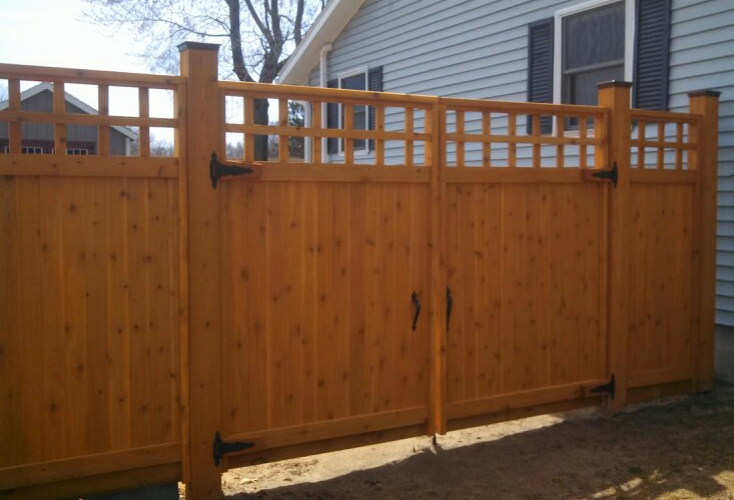All Categories
Featured

When intending to set up a fencing around your residential or commercial property, among the primary steps is understanding the permitting demands in your area. While the process might seem straightforward, local laws can vary considerably relying on where you live. Safeguarding the proper permits prior to beginning the setup is essential to prevent possible fines, disagreements with next-door neighbors, and even needing to remove your fencing. Below's what you require to know about getting the required authorizations for your fencing setup.
Why Do You Required a Permit for a Fence? An authorization is commonly needed for fencing installations to make certain compliance with local building regulations, zoning regulations, and safety laws. Permitting assists regional authorities preserve harmony in community visual appeals, safety, and ecological considerations. It additionally makes sure that the fencing does not conflict with energy lines or public areas, which it complies with elevation and limit restrictions.

Typical Licenses Required for Fencing Installment. Building License. Many areas call for a structure license for fence setup, specifically if the fence surpasses a particular height (usually over 6 feet) or is made from non-standard products. This license makes sure that your fence complies with local structure codes. In some areas, the structure department will examine the site to ensure that the fencing fulfills security and architectural criteria.
Zoning Permit. Zoning authorizations are made to guarantee that your fence sticks to local zoning legislations, including troubles from residential property lines, easements, and rights-of-way. Zoning legislations differ from city to city, and in many cases, your fencing might need to be held up a particular variety of feet from the walkway or road. A zoning authorization might also be necessary if your fencing is in a historic area or various other specifically designated areas.

Fencing Permit. In some areas, a details "fence permit" might be required. Some cities restrict chain-link fences in front yards or have details guidelines for privacy fencings.
HOA Authorization. If your home is part of a property owners association (HOA), you might need authorization before installing a fencing. HOA standards typically consist of details policies regarding the type, elevation, color, and materials for fencings to maintain the neighborhood's visual appeals. HOA laws can be more stringent than city codes, so always inspect their standards before progressing.
Easement or Utility Permits. If your fencing will be near or across an easement (such as an utility easement), you may need to get approval from the energy company or various other entities that control the land. This is particularly crucial if you intend to mine fence posts, as it ensures you won't damage underground utilities like gas, water, or power lines.
How to Locate Out What Allows Are Called for. The very best way to establish which authorizations are needed for your fencing setup is to call your neighborhood structure division or municipal office. They can give you with details info regarding demands in your area. Right here are a few actions you can take to figure out:
Check the City or Region Site: Several city governments supply details concerning fencing setup allows online. Try to find building or zoning sections on their website. Call or See Local Federal Government Workplaces: If the info is not readily offered online, calling or checking out the local workplace face to face can clarify what's needed. Get In Touch With an Expert Service Provider: If you're overloaded or uncertain by the process, a local contractor or fence installment business can assist in browsing the allowing procedure, as they're familiar with regional policies. What Occurs If You Don't Obtain an Authorization? Stopping working to acquire the required authorizations can cause a variety of repercussions. In lots of locations, you could face penalties, and your fencing could be ordered to be removed. In addition, if you market your residential property in the future, the absence of correct permits could be a warning for buyers and impact the sale. Permitting makes certain that your fence is certified and helps avoid future issues.
Verdict. Prior to setting up a fence around your property, it's necessary to examine whether an authorization is called for in your area. Building authorizations, zoning licenses, HOA approval, and utility permissions might all play a duty in your fencing installment process. Putting in the time to study and get the needed authorizations will certainly not only make certain that you're adhering to regional guidelines, however likewise assist safeguard your investment and keep the honesty of your building.
Latest Posts
Discover WyHy Federal Credit Union – Exclusive Benefits for Your Financial Success
Published en
1 min read
Why Routine Vehicle Maintenance at Montclare Auto Repair Keeps Your Wallet Happy
Published en
1 min read
Seamless Aluminum Rain Gutters: The Smart Selection for Your Home
Published en
1 min read
More
Latest Posts
Discover WyHy Federal Credit Union – Exclusive Benefits for Your Financial Success
Published May 28, 25
1 min read
Why Routine Vehicle Maintenance at Montclare Auto Repair Keeps Your Wallet Happy
Published May 26, 25
1 min read
Seamless Aluminum Rain Gutters: The Smart Selection for Your Home
Published May 24, 25
1 min read